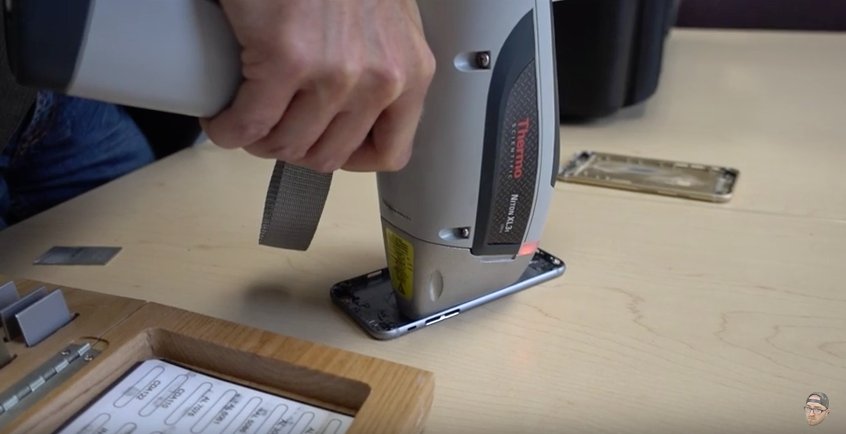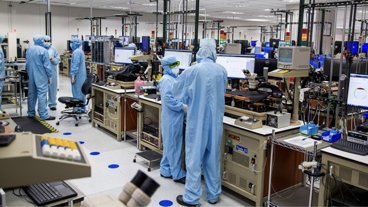Composition testing of what is purportedly a shell for Apple's next-generation iPhone confirms previous reports that the new device will move to 7000-series aluminum, an alloy first introduced to Apple's lineup with the Watch.
The supposed iPhone 6s shell acquired by Unbox Therapy shows high concentrations of zinc, indicative of 7000-series aluminum. Generally speaking, adding zinc — along with magnesium — Â to create 7000-series aluminum results in an alloy that is much harder than the more popular 6000-series, and consequently more difficult to work with.
When the Watch was announced, Apple proudly pointed out that the 7000-series alloy used in the sport models was in fact a custom Apple composition, though it's still not clear exactly what they changed. It's possible that they could've made concessions to make the material easier to handle during manufacturing, for instance, though they claim substantial improvements in strength.
"For Apple Watch Sport, we started with 7000 Series aluminum — the same used in competition bicycles," Apple says on its website. "We altered it to create a new alloy that's just as light, yet even more durable — it's 60 percent stronger than most aluminum, and one-third the density of stainless steel."
While it's not clear whether the alloy used for the iPhone 6s will be exactly the same as the one used for the Watch, the move is likely to make the handsets much stronger. Many users have found that the smoothly-rounded corners of the iPhone 6 and 6 Plus are easy to dent, a charge long leveled at the also-aluminum MacBook lineup.
The YouTube video also shows a "bend test" that indicates the new iPhone shell will be significantly stiffer than its predecessor, though the rig used is not a standard material deformation gauge, making the actual results of the testing somewhat questionable.
 AppleInsider Staff
AppleInsider Staff








 Andrew Orr
Andrew Orr
 Amber Neely
Amber Neely
 Marko Zivkovic
Marko Zivkovic
 William Gallagher and Mike Wuerthele
William Gallagher and Mike Wuerthele



 Mike Wuerthele
Mike Wuerthele








60 Comments
Credit card is in hand. Can't wait!
I demand that Apple now issue a recall for all iPhone 6's, (all 100 million of them) since this is evidence that Apple has admitted to this serious design flaw. /s
Theraby? Please...
Right because Unbox Therapy is the expert in materials science. This guy is just looking for more YouTube hits. Just this morning on Twitter he was bragging about his "bendgate" video being the 4th most viewed on Twitter last year.
Why are you giving this POS any more publicity?